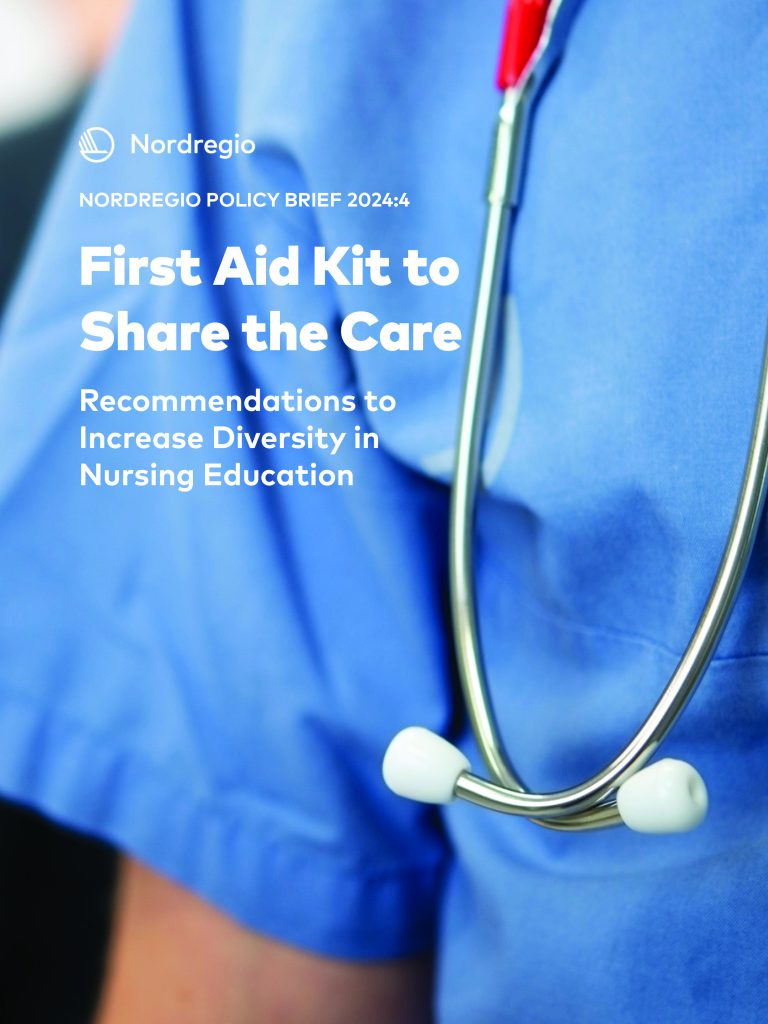Gender imbalance in nursing has significant social, cultural and economic implications. Nursing remains a female profession, which not only limits workforce diversity – but also perpetuates gender norms. Encouraging more men to enter and succeed in the field is essential to address critical workforce shortages and ensure equitable representation. A more diverse workforce enhances creativity, improves patient care and better reflects the communities it serves, ultimately contributing to a more equitable healthcare system.
According to Gísli Kort Kristófersson, Professor of psychiatric nursing at University of Akureyri, and a project member in “Share the Care”, there are four main reasons why we should increase male enrollment to nursing:
“First of all, it’s kind of a human right argument. Males should have the right to go to nursing without having this micro aggression. It has to be a choice, and it has to be with you being the person you want to be.
Two is work force reason […]. If we are only recruiting from one half of the population […], if we only recruit to nursing people with red hair we would have less nurses, and it’s the same with gender […] and we are facing a shortage of nursing.
Then there is a quality reason […] that the nurses should represent the users they serve, and this goes for race, ethnicity, culture, […], and gender is only one part of that.
And then there are also evidences to suggest that more gender balanced workplaces are a little happier”.
Why are men under-represented in nursing, why are they dropping out of nursing studies and why don’t they take jobs in the care sector? The project tries to address these questions. Funded by the Nordic Gender Equality Fund (NIKK), the Share the Care project is a joint initiative of Nordregio and partners from Iceland, Norway and Finland. By focusing on tackling stereotypes, providing mentoring and creating inclusive educational environments the project provides a policy brief of recommendations.
The recommendations are presented by administrative level and include for example grouping male students and practitioners together, revising recruitment materials and language to ensure they are gender-neutral and inclusive, removing stereotypical images and texts. Additionally, the report recommends incorporating diversity, inclusion, and gender equality training into the nursing curriculum for all students.
The full list of recommendations is available as a handbook called “First aid kit to share the care”. Through this policy recommendations for institutional change as well as a roadmap for universities and governments to promote gender diversity in healthcare, it aims to address the barriers that prevent men from pursuing careers in nursing and to develop innovative solutions to recruit, retain and support male nursing students.

If you are interested in a longer read, have a look at the “Share the Care: Strategies to Increase Diversity in Nursing Education“ report. The report includes a literature review highlighting gender segregation in health occupations, with a specific focus on the Nordic countries. On a Nordic level, less than 20% of nursing graduates across all levels are men in most years. In Finland and Norway, approximately 10-12% of the nursing workforce are men, while in Iceland, this figure is less than 2%. Men are more frequently found in leadership roles, leading to vertical segregation.

The project emphasizes practical measures that have been found effective in creating a more welcoming nursing education environment for all genders, such as grouping men together, reviewing recruitment materials, and raising awareness about gender imbalances in nursing education.
The project findings are particularly relevant to educators, policy makers, careers advisers and healthcare professionals who are committed to promoting gender equality. It is an opportunity to join an important conversation about transforming the healthcare workforce to meet the needs of diverse populations. By promoting inclusivity in nursing, we can challenge traditional gender norms, tap into untapped talent pools, and strengthen the healthcare system for all. To ensure a future of nursing education and profession that is inclusive and just, by redefining norms, and building a healthy workforce that works for all.
The policy recommendations have been presented and discussed in the webinar “Who cares about men in care?”. You can watch the webinar here.
Authors: Maija Kāle, Research Consultant, and Debora Pricila Birger, Senior Research Fellow, Nordregio

